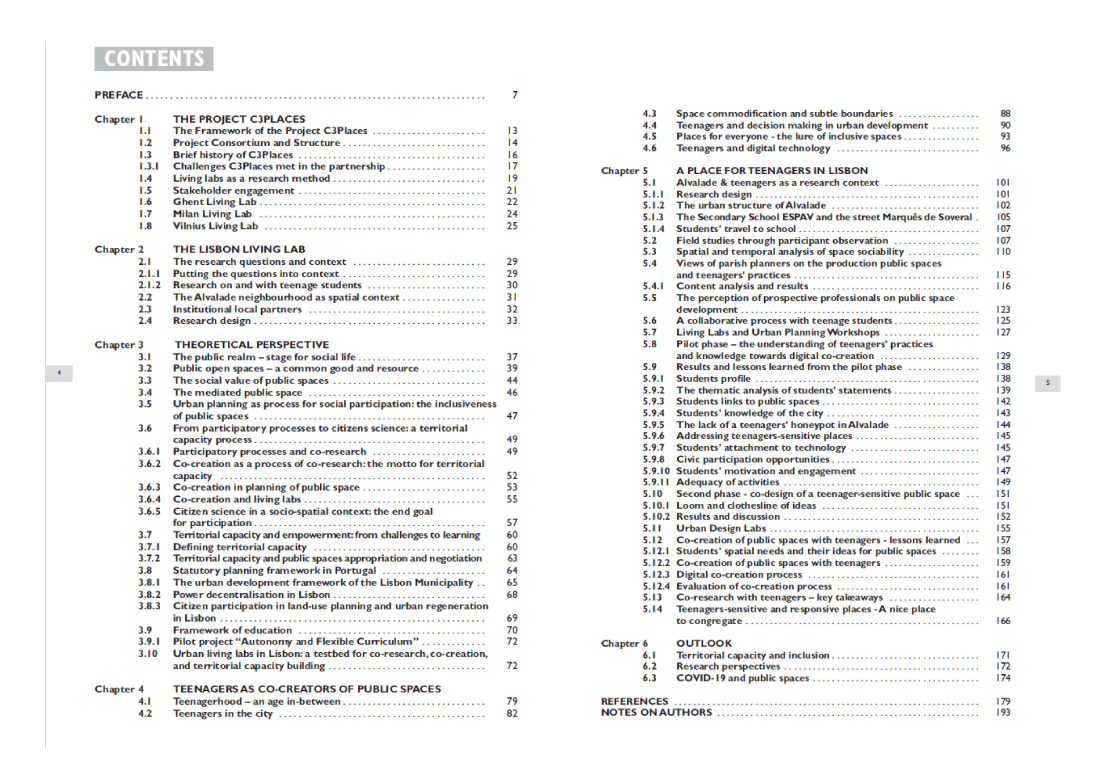Culture & Territory
Vol.07 Territorial capacity and inclusion: Co-creating a public space with teenagers. C3Places Project

- Vol.07 - Territorial capacity and inclusion: Co-creating a public space with teenagers. C3Places Project
- Carlos Smaniotto Costa, Marluci Menezes, Joana Solipa Batista - Authors
- 2023
- ISBN 978-989-757-180-0 | ISSN 2184-8009
- DOI: https://doi.org/10.60543/ecati/8svp-d513
Synopsis
Territorial Capacity and Inclusion: An experience with teenagers in co-creation of a public space in Lisbon provides insights regarding the involvement of teenagers in co-creation of public open spaces. It points to academics, practitioners, policymakers, students, and all others concerned with increasing intangible benefits of engaging young people in placemaking. It provides the reader with an in-depth analysis and reflection gained with a case study in Lisbon and includes a comprehensive coverage of topics related to spatial practices and needs of teenagers.
This book aims at inspiring progressive placemaking and co-creation processes. It attempts to reframe how vulnerable members of the community access public spaces, what are their needs and what would be their response to a more people-centred urban design. It is with respect to these points that the book Territorial capacity and inclusion provides reflections and draws learnings from engaging teenagers in the production of public spaces. On these particular matters, the insights of teenagers, who rarely have the opportunities to be heard and their views to be considered, become particularly important. Inclusiveness and placemaking are important change drivers to enhance democracy.
Territorial Capacity and Inclusion is based upon the case study developed in Lisbon in a collaboration between Universidade Lusófona and LNEC within the framework of the C3Places Project. The Project C3Places has received funding from the European Union’s Horizon 2020 research and innovation programme under grant agreement No 693443 and from the FCT (Portuguese Funding Agency for Science, Research and Technology).



